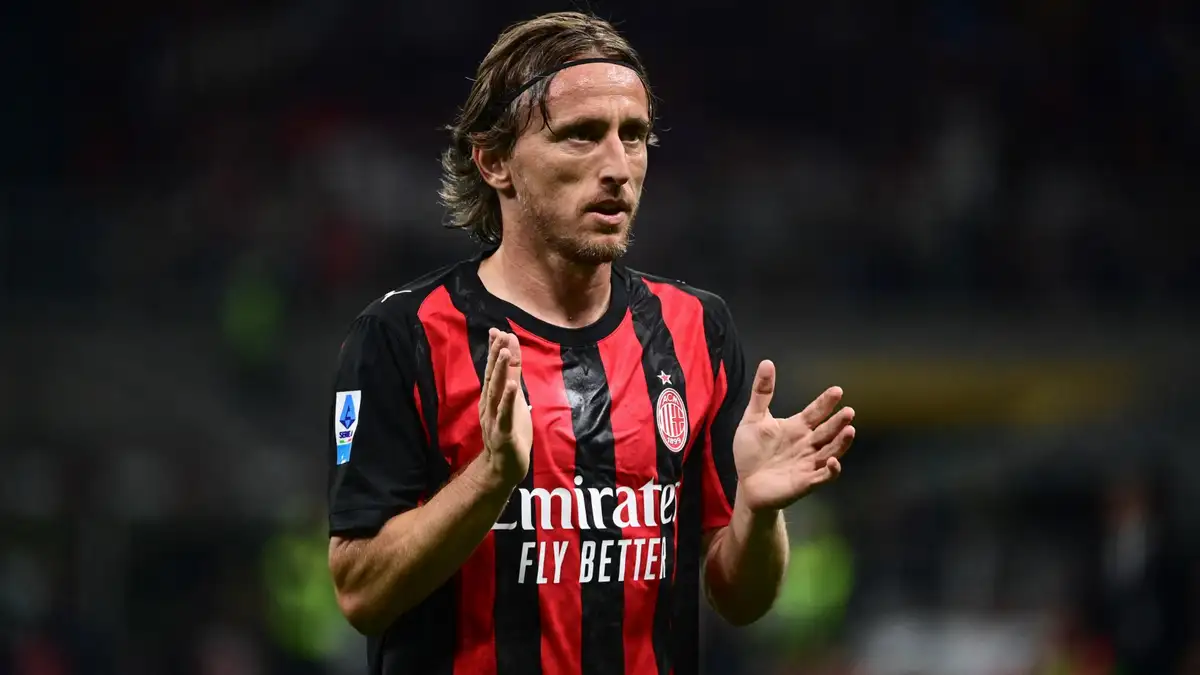
‘You Just Have to Love Luka Modric’ – AC Milan Don’t Know How Lucky They Are to Have ‘Admirable’ Real Madrid Legend
Ex-Barcelona Star Ivan Rakitic Praises “Unique, Special” Modric as 40-Year-Old Midfield Maestro Shines in Serie A
There are certain footballers whose careers become stories in themselves—chapters of excellence that extend far beyond club lines, rivalries, or eras. Luka Modric belongs firmly in that category. At 40 years old, playing his first season in Serie A, he’s not just competing—he’s starring. And if you ask Ivan Rakitic, his long-time Croatia team-mate and former Barcelona midfielder, AC Milan still haven’t fully grasped how fortunate they are.
Rakitic’s admiration isn’t new, nor is it wrapped in diplomacy. It’s simple, honest, and heartfelt: “You just have to love Luka.”
Because when a player is still dictating games at 40, still captaining his national team, still earning standing ovations from opposing fans, the conversation goes beyond tactics or statistics. It becomes about longevity, mentality, and a relationship with the game that most professionals can only dream of.
Let’s dive into why Modric’s move to Milan has already turned into one of the stories of the season—and why Rakitic believes the Rossoneri don’t yet understand the treasure they’ve acquired.
Modric at 40: Still the Metronome, Still the Difference-Maker
Modric’s arrival at AC Milan last summer as a free agent felt strange at first—almost surreal. After more than a decade of orchestrating Real Madrid’s midfield, you’d be forgiven for wondering how he’d adapt to a new league, new teammates, and a new rhythm at his age.
The answer? Seamlessly.
Modric has started all eleven Serie A games this season, playing 965 of 990 possible minutes. His numbers—one goal and two assists—don’t begin to capture his influence. It’s the tempo he sets. The way he scans. The way he drifts into pockets just as Milan’s movements open pathways. The simple touches that make complicated things look ordinary.
Most players at 40 are thinking about farewell tours. Modric is thinking about passing angles.
His impact isn’t limited to club football. He remains the heartbeat of Croatia’s national team, and nothing illustrated that better than the World Cup qualifier against Montenegro. Entering the match in the 78th minute with Croatia 2-0 down, Modric helped carve out a roaring comeback to secure a 3-2 victory.
When the stadium rose to applause for him—an opposition stadium—Modric himself admitted he needed a moment to realize it was for him.
“I am sincerely grateful,” he said. “My love for football helps me continue to push forward.”
It’s that love—more than fitness, diet, or talent—that keeps him performing at a level players half his age struggle to match.
Rakitic’s Tribute: “Unique, Special… Admirable”
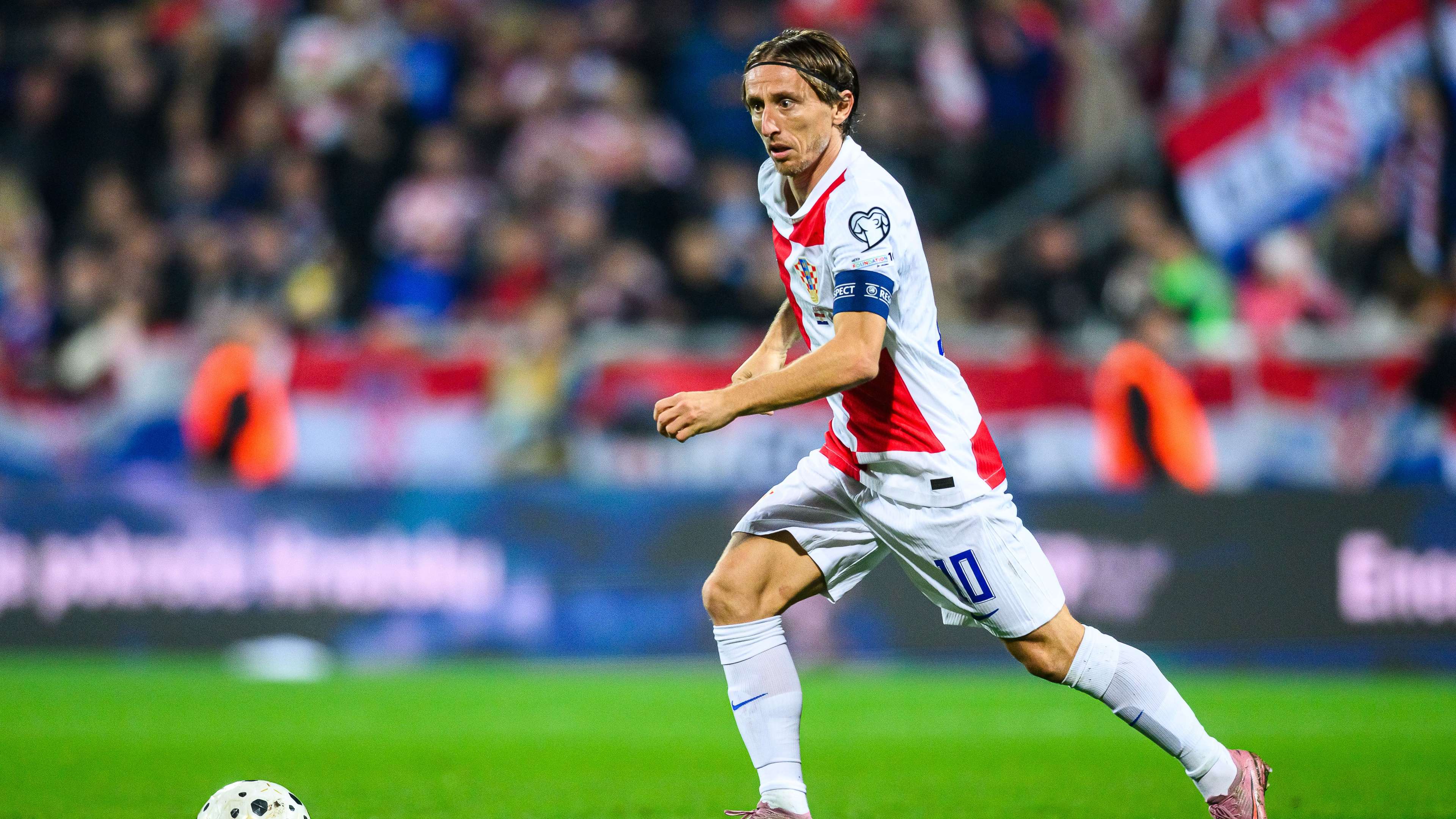
Croatia v Faroe Islands – FIFA World Cup 2026 Qualifier
Rakitic knows Modric better than most. They entered the Croatian national team setup at a young age and spent over a decade building a midfield partnership rooted in mutual respect and quiet brilliance. Their bond is more than professional—it’s personal.
Speaking to Flashscore, Rakitic didn’t hold back:
“You just have to love Luka because the way he approaches football and how he does it is admirable.”
That word—admirable—isn’t thrown around lightly by a player who has shared dressing rooms with Lionel Messi, Andres Iniesta, and Xavi. For Rakitic, Modric’s aura goes beyond the tactical.
He also suggested that AC Milan may not fully grasp their good fortune:
“I think that in Milan they’re not yet aware of how lucky they should be to have brought Luka into their club.”
It’s a bold statement, but one grounded in truth. How often does a club sign a five-time Champions League winner, a Ballon d’Or recipient, and a World Cup finalist—who still plays like a world-class starter?
Rakitic added that Modric can keep going “for another few years,” which no longer feels optimistic—it feels realistic.
Milan’s Scudetto Ambitions: Why Modric Is Central to Allegri’s Plans
Modric didn’t come to Milan to be a symbolic figure. Massimiliano Allegri has built his Scudetto challenge around experienced leaders—players who can manage tempo, absorb pressure, and elevate standards.
Milan’s absence from European football this season has unexpectedly become a strategic advantage. With a lighter schedule compared to Napoli and Inter, the Rossoneri can maintain freshness and consistency in their league push.
And Modric is key to that.
Eleven games in, Milan sit just two points behind Inter and Roma. With the Derby della Madonnina around the corner, they could move top depending on other results. Modric’s control in midfield, his ability to dictate high-pressure fixtures, could make all the difference.
The Rossoneri haven’t always had a metronome in recent years. They’ve had power, pace, work rate—but not someone who manipulates space and rhythm in the way Modric does.
This season, they do.
What Next for Modric and Milan? The Derby, the Dream, and the Challenge
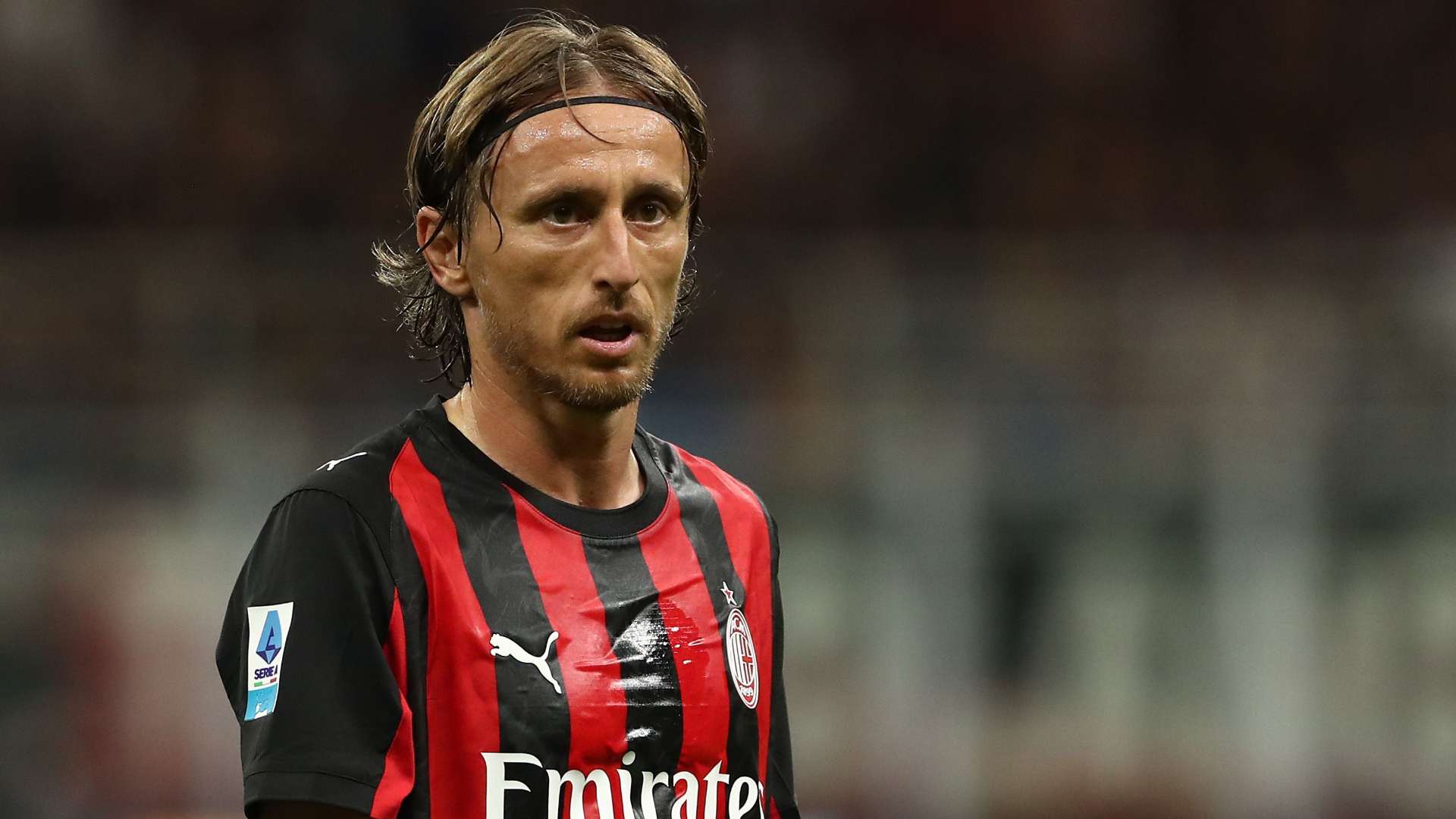
Luka Modric Milan
Milan’s upcoming clash with Inter is more than just a derby—it’s a statement game. One of those fixtures that signals whether a team is merely competitive or genuinely title-worthy.
Modric is expected to play a defining role, but he isn’t the only returning influence. Adrien Rabiot, back after a month out with injury, expressed his determination to make an impact in a lighthearted but telling comment:
“It would be great to win in the last minute with a goal from you!” he joked, referring to his own potential comeback moment.
He added, “It’ll be tough; we’re both strong teams. The details will be decided.”
He’s right. Derbies are often decided by details—experience, composure, decision-making. In other words: Luka Modric territory.
Why Modric’s Story Keeps Getting Better
If there’s a theme to Modric’s late-career renaissance, it’s this: he refuses to slow down—not because he fears the end, but because he still genuinely loves the game.
Rakitic sees it. Milan fans are beginning to feel it. Serie A is starting to witness it.
And football, universally, continues to admire it.
A player like Modric doesn’t come around often. At 40, still decisive, still magical, still humble, he stands as a reminder that footballing intelligence ages differently—that genius has no expiry date.
AC Milan may not yet fully grasp how lucky they are.
But they will. Probably sooner than they think.



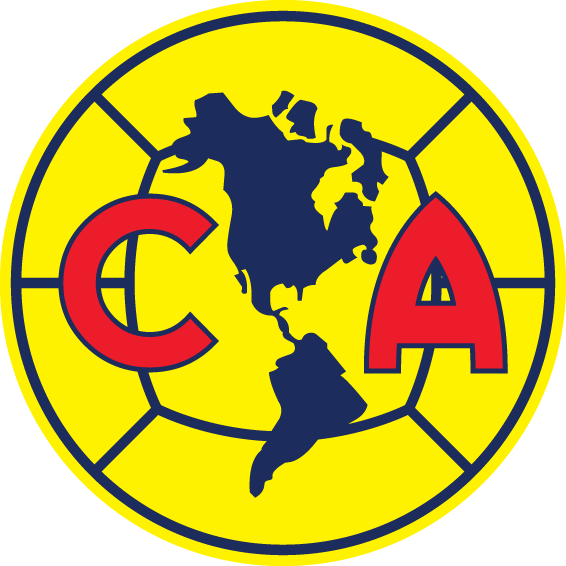






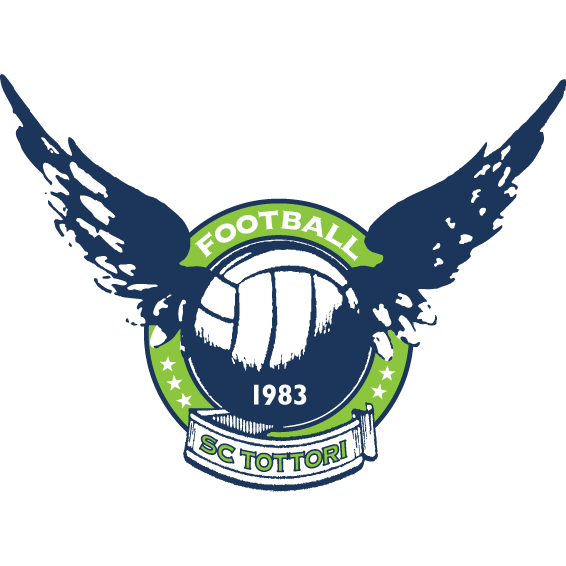



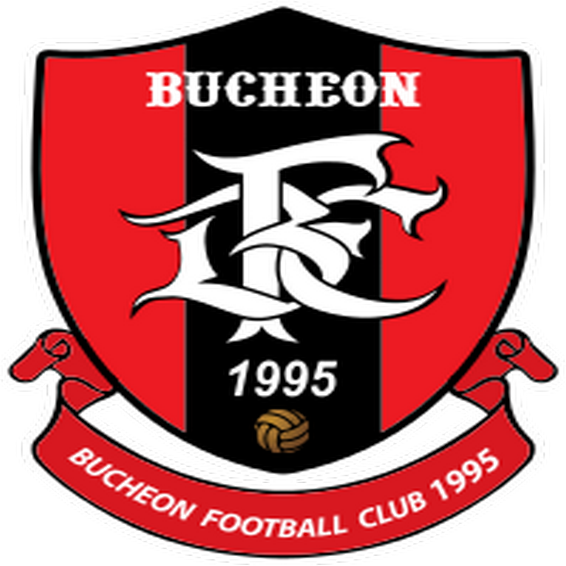
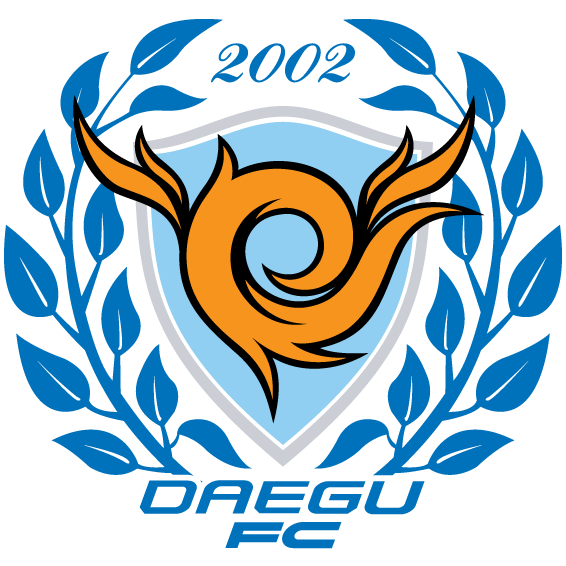


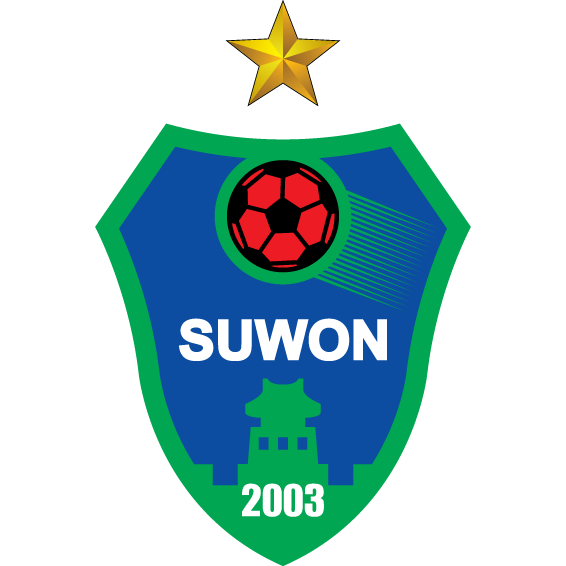
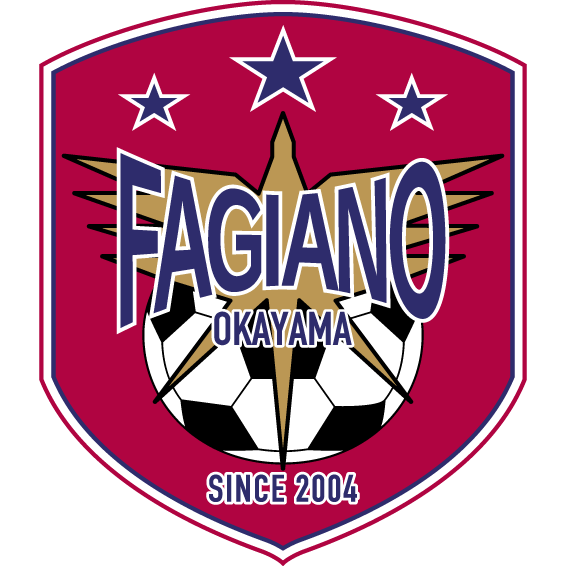





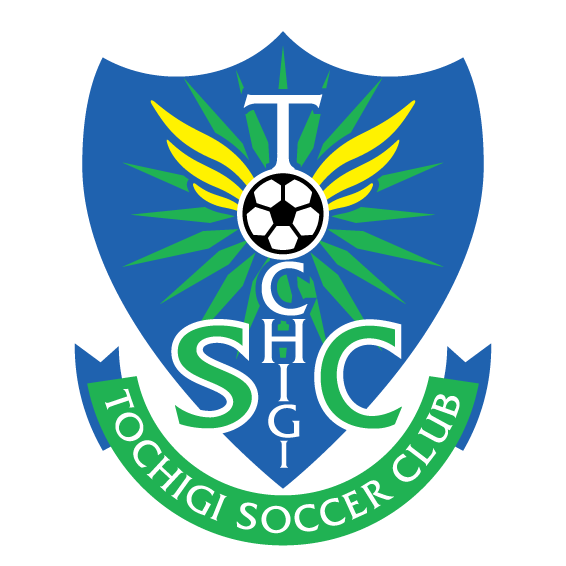
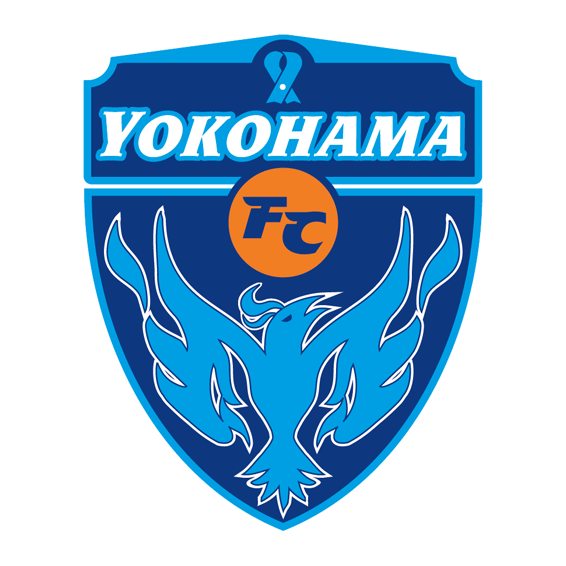

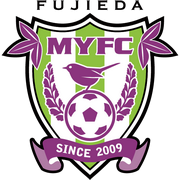




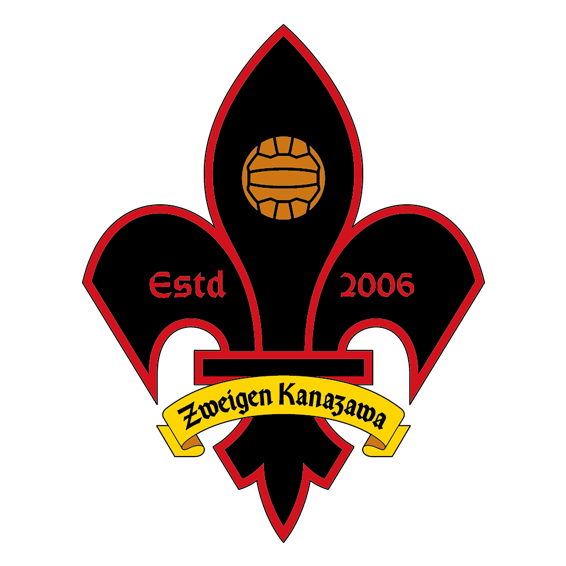
























There are no comments yet. Be the first to comment!